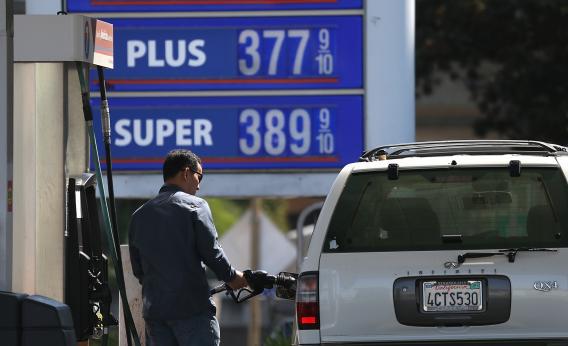Paul Krugman notes that it’s strange to argue that macroeconomic conclusions must be “microfounded” when microeconomic analysis itself often lacks plausible foundations in the study of human psychology. His specific example is that when the price of gasoline started to rocket upwards in the 1970s, we saw a rapid increase in interest in self-service gasoline even though under a standard model the price of the underlying commodity shouldn’t be all that relevant to consumers’ tradeoff between price and convenience.
As a further consideration of these ideas consider the state of New Jersey where self-service gasoline is illegal.
You must purchase more expensive, more labor-intensive full-service gasoline and even such a Hero of Free Market Economics as Chris Christie supports the laughable inefficient New Jersey gasoline status quo. How does that hold up? Is it all thanks to the corrupt power of the gasoline pumpers’ lobby? Well in part, sure, it’s a concentrated interest. But New Jersey also stands out for having much lower gasoline taxes than the nearby states of New York, Pennsylvania, Delaware, Maryland, and Connecticut. In fact, New Jersey’s gas taxes are even lower than taxes in right-wing oil states like Louisiana, Texas, and Oklahoma. The result is that New Jersey drivers don’t feel that they’re overpaying for gas since they’re actually paying less than their neighbors pay.
Now where a little good old-fashioned microeconomics comes in is in trying to persuade the residents of the Garden State that this policy dynamic makes no sense.
At any given level of taxation, consumers should be allowed to make their own choice between paying more for full service and paying less for self-service. If the state legalized self-service, then either New Jersey gasoline would get even cheaper or else the legislature could raise gas taxes and offset with a cheaper overall retail sales tax. Or whatever. The point is that the decision about taxation and the decision about self-serve are independent, and the fact that gasoline is very highly taxed elsewhere in the Northeast is totally irrelevant. But people’s practical thinking about these questions does not follow those precepts as an empirical matter and that’s relevant for both their political attitudes and their consumer behavior.
